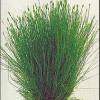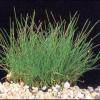Cyperus helferi
Scientific name: Cyperus helferi
Family: Cyperaceae
Maximum size reached under cultivation: 20 - 35 cm (7.87 - 13.78 inch)
014
Recommended pH range: 5.5 - 7.5
Recommended water hardness: 0 - 18°dGH (0 - 321.43ppm)
0°C 32°F30°C 86°F
Recommended temperature range: 20 - 30 °C (68 - 86°F)
Preferred propagation method: Divisions
Native to: South Asia
Growth rate: Slow
Recommended substrate: Fine gravel
Lighting requirements: Bright
Ideal placement in tank: Midground
Family
Cyperaceae
Common Names
Cyperus Grass, Helfer's Umbrella Sedge
Origin
Cyperus helferi originates from Southeast Asia, especially Thailand. It is the only known species of Cyperus that grows fully submerged in freshwater environments, making it unique among sedges.
Propagation
Cyperus helferi propagates naturally through division. Over time, the plant produces side shoots or daughter plants at the base. Once these develop roots and a few leaves, they can be gently separated and replanted in fine gravel. Propagation is slow, often taking weeks to months before the new plants are fully established.
Difficulty
Considered difficult. Although hardy once acclimated, it is slow to establish and demands stable conditions, high lighting, and a clean environment. Best suited for experienced aquarists and high-tech planted tanks.
Short Description
Cyperus helferi is a rare and elegant aquarium plant featuring long, narrow, ribbon-like leaves that gently sway in the water. It is ideal for midground or background placement in aquascapes, where its flowing form creates a grassy, natural look. As the only Cyperus species suited for full submersion, it holds a special place in aquascaping for Southeast Asian biotopes and nature-style layouts.
This species is slow to acclimate and prefers clean, soft to moderately hard water, bright lighting, and minimal organic waste. CO2 injection and a nutrient-rich substrate support healthier development. Its flowing, ribbon-like foliage softens the aquascape and brings a sense of movement and serenity to planted aquariums.
Maintenance and Care
It grows best in temperatures between 20–30°C (68–86°F), with a pH range of 5.5 to 7.5 and water hardness of 0–18°N (0–321 ppm). Provide high lighting to maintain healthy form and prevent leaf deterioration. Avoid shaded areas, which may stunt growth. Trim any damaged or algae-covered leaves near the base. Due to its slow growth, trimming is rarely necessary. However, stable conditions and regular fertilization are essential for long-term success.
Compatibility
This plant is compatible with most peaceful community fish and shrimp species. Avoid housing it with aggressive or herbivorous fish that may uproot or damage its delicate foliage. Its long, arching leaves offer shelter for fry and add visual tranquility to planted tanks.
Submersion and Aquascaping
Cyperus helferi is a true aquatic species that grows fully submerged. It should be planted directly into the substrate in the midground or background. Its arched, flowing shape adds vertical movement and softness to nature-style aquascapes or Southeast Asian biotope tanks.

 Cyperus alternifolius
Cyperus alternifolius Eleocharis acicularis
Eleocharis acicularis Eleocharis vivipara
Eleocharis vivipara